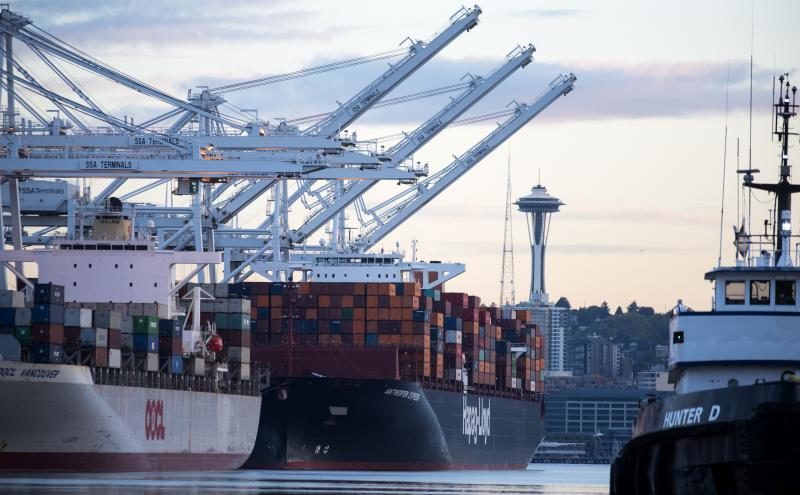PMA and ILWU take West Coast port feud to social media
Labor and management groups make conflicting claims about work conditions at Port of Seattle

The labor dispute at West Coast container ports grew messier over the weekend, as port operators claimed that workers had walked off the job at the Port of Seattle on Friday and Saturday, but unions explicitly refuted that claim.
The feuding claims are the latest step in more than a year of tense negotiations to renew workers’ contracts. In other recent steps, workers likewise withheld their labor at the ports of Los Angeles, Long Beach, Oakland, and Seattle on various dates in April and June.
Those actions triggered delays in import and export container movements, and prompted calls from retail trade groups such as the American Apparel & Footwear Association (AAFA), National Retail Federation (NRF), and Retail Industry Leaders Association (RILA) for the White House to oversee contract talks.
That debate continued today, when the Pacific Maritime Association (PMA), which represents the interests of ocean carriers and terminal operators, accused the International Longshore and Warehouse Union (ILWU) of staging disruptive work actions that led to containerized terminal operations coming to a halt.
“Yesterday at the Ports of Los Angeles and Long Beach, the ILWU resumed its past practice of withholding lashers from terminals at the nation’s largest port complex, resulting in vessels having to miss their scheduled departures. The Union also did not fill orders for labor from several terminal operators despite the fact they were placed properly and on time,” the PMA said in a statement posted to social media.
While those actions do not rise to the level of a full strike against the ports, they produce nearly the same effect. According to the PMA, union members slow down logistics flows in the following ways: delaying the daily standard dispatch process; withholding specialized workers, such as cargo-handling equipment operators or lashers; making unfounded health and safety claims; deliberately conducting inspections that are not routine, not scheduled, and done in a way that disrupt terminal operations; and improperly coordinating lunch and unit breaks to drain all labor from terminals at the same time.
However, the ILWU specifically refuted those claims.
“Despite what you are hearing from PMA, West Coast ports are open as we continue to work under our expired collective bargaining agreement,” ILWU President Willie Adams said in a social media post on Saturday.
According to Adams, the PMA has been using the media “to leverage one-sided information in attempt to influence the process.” But meanwhile, the union’s 22,000 longshore workers at 29 U.S. West Coast ports have been working under an expired contract since July 1, 2022.
The union leader said that the ILWU and PMA continue to negotiate the collective bargaining agreement and are committed to reaching an agreement.
The Port of Seattle has made no public statement about current work conditions.
Related Articles

Copyright ©2024. All Rights ReservedDesign, CMS, Hosting & Web Development :: ePublishing